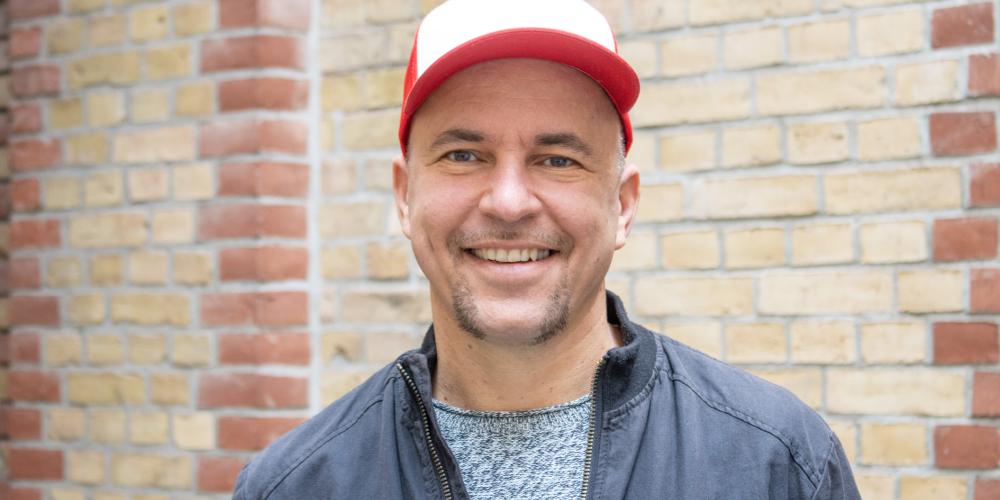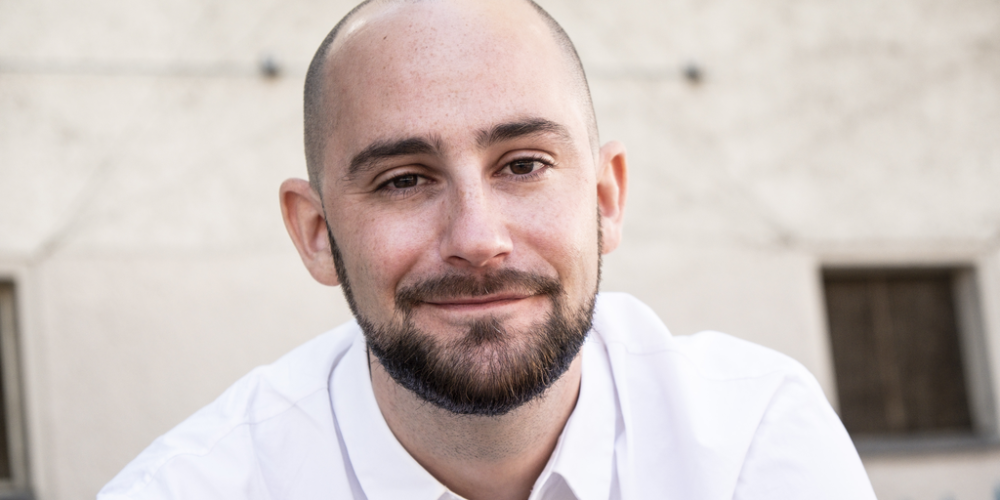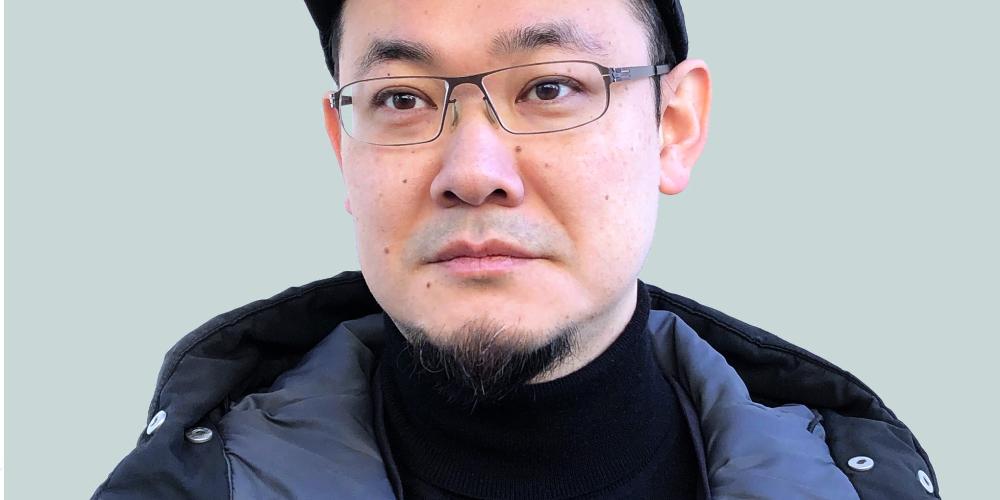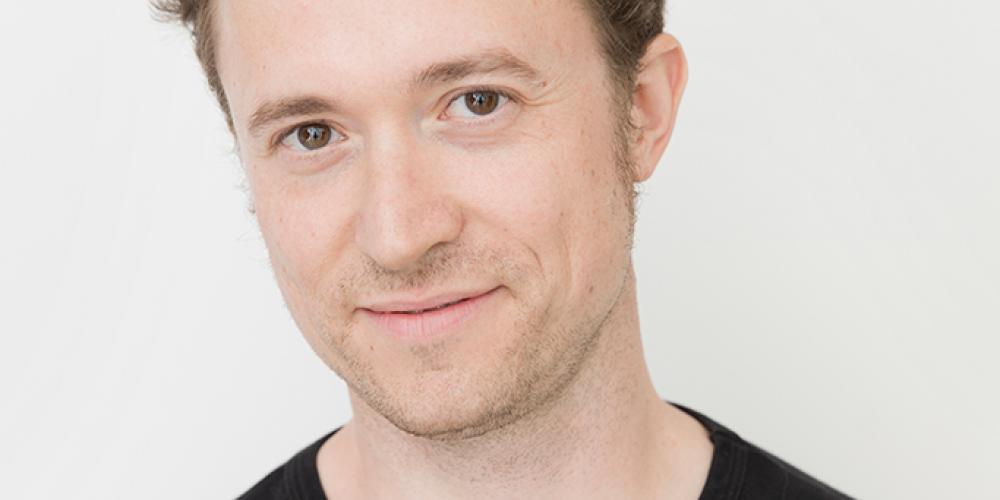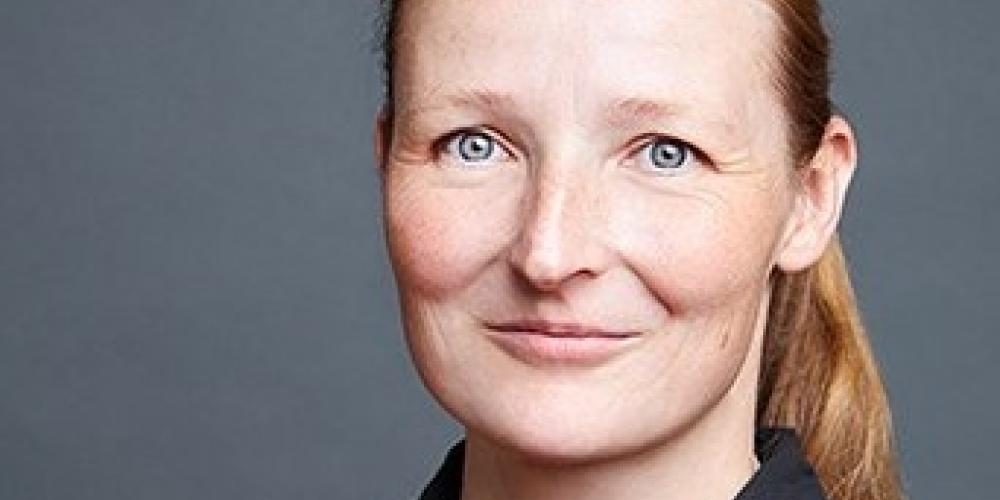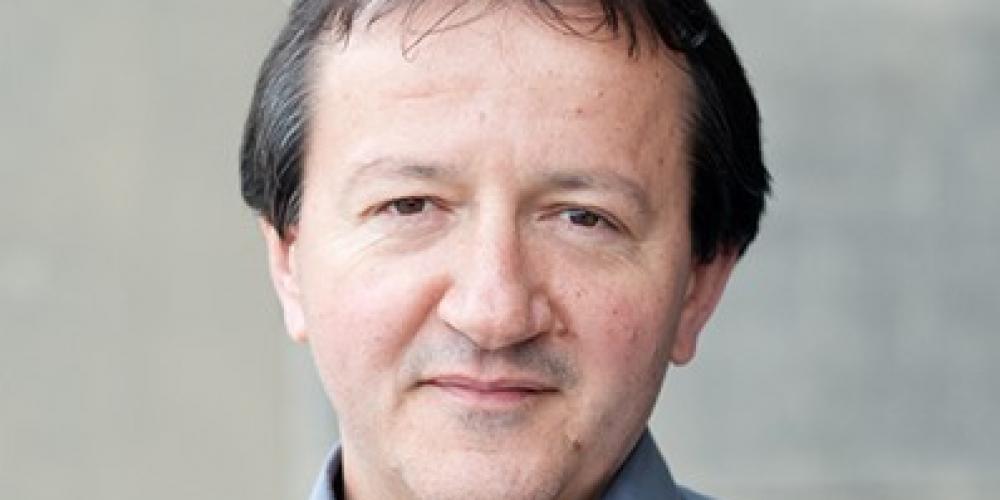Faculty of Humanities and Social Sciences
Dr. Lilge, founder of gamelab.berlin, is working on the conception and implementation of digital and analog learning and experience offerings that use playful elements to generate continuous motivation throughout the entire period of use. Examples of such offerings include serious games, i.e., serious games that pursue specific learning objectives; gamified apps, i.e., applications that contain playful aspects; digital and analog exhibits; and immersive room design that immerses the user in a captivating experience. The goal is that people, through these interactive and engaging learning methods, will be motivated to expand their knowledge and actively engage with the content. In addition to his work as a researcher on the cultural technique of games, he advises companies and organizations on the topics of gamification and human focused design.
- Conception and testing of digital prototypes
- Consulting on interdisciplinary innovation projects
Twiddle - mobile game for 8 research museums of the Leibniz Association
Polarstern 360° - Virtual and Augmented Reality Exhibition at the Bremerhaven Maritime Museum
Snapture - mobile game for teaching image literacy for the Bode-Museum Berlin
Mein Objekt - playful knowledge transfer for e.g. Humboldt-Forum Berlin, Badisches Landesmuseum, a.o.
Gamification Expert Level 3 of the Engagement Alliance and
certified Octalysis Framework user
Prof. Staab's research combines topics of labor, social structure analysis, sociology of technology and political economy in a contemporary analytical perspective. Currently, Prof. Staab is particularly involved with questions of the political shaping of digital capitalism, the connection between digitalization and sustainability, as well as the role of critical infrastructures for the future viability of modern societies. The professor pursues a theory-oriented, present-diagnostic sociology in the context of social change, conflict, and inequality, which always seeks dialogue with the public.
- consulting,
- drafting of studies and
- policy papers as well as presentations
on important current topics in the areas of society, politics and economics, in particular digitalization and sustainability as well as work. The focus is on future developments of society as well as political and economic options for action.
- Organizing and conducting several conferences with a large political foundation
- Writing a policy study for a large labor union
- Advising members of parliament, ministries as well as the European Commission
Prof. Miyazaki, is a critical humanities scholar working on the theory, critique, and history of digital media, digitization, and computation as productive practice. He uses numerous social-critical, philosophical and technology-related theories of the last century (historical materialism, critical theory, poststructuralism, science and technology studies, media theory, media archaeology, postcolonialism, design studies). Currently, Prof. Miyazaki is working on the theory and history of alternative, non-profit, sustainable production practices that could be realized through other types of digitization. The focus is not only on social change, but also on technical-media change, which has no future without critical knowledge of technology.
Consulting through studies, lectures and talks on current topics in the field of information technologies, algorithms, society, culture and politics with a focus on digitalization, sustainability and criticism. The focus is on the deployment of alternative lifestyles and forms of life in the future, as well as socio-political opportunities to take action.
- Establishment of the Critical Media Lab at the Institute Experimental Design and Media Cultures at the School of Art and Design FHNW (Claudia Mareis).
- Associated Investigator in the Cluster of Excellence "Matters of Activity".
- Publication: "Counter-Dancing Digitality. On Commoning and Computation".
Humboldt Forum
Charité
Dr. Stein has a lot of experience with the conception and development of serious games and gamification for knowledge transfer, especially for museums, cultural institutions and in medicine. As a Germanist and computer scientist, he masters both the conceptual and cultural perspective as well as the technical of implementation. He has led over 15 software development projects in the areas of App, VR, AR and Browser Apps. When it comes to imparting knowledge and gaining experiences, games are the medium of our time, according to Dr. Stein. As a researcher and game developer, he is particularly interested in exciting mediation challenges.
http://humboldt.gmbh/forschungskooperation
Dr. Stein develops concepts for knowledge transfer games, Serious Games and Gamification. He is also involved in software development, implementation and testing. He also offers workshops on VR and games as a cultural technique.
The following software projects were all developed iteratively and agilely in an academic context according to Dr. Stein's conception. In addition, they were tested and published under his leadership and represent a significant part of his publications.
Mein Objekt
- Mein Objekt
is an innovative museum game that enables visitors to engage in dialogue with objects, seeking to transform digital habits into cultural interest. Using machine learning and adaptive language, an adaptation of the application to the individual visitor is ensured, resulting in a personalized, interest-driven museum tour. The project was developed for the Humboldt Forum as part of museum4punkt0 and will be used there for the first time when it opens. It is developed in React Native and is used BYOD for Android and iOS.
Diary
-
Diary is a tool for exploring scientific interdisciplinary work and has been developed for the Experimantalzone of the Cluster of Excellence Image Knowledge Gestaltung to better understand interdisciplinary collaboration. It is developed for macOS in Objective-C and can record, visualize and synchronize activities such as software usage, keystrokes, activity cycles and more with a server. It is used to explore digital working practices and habits across disciplines and also benefits users in terms of self-reflection on their working practices.
iWrite
- iWrite is a gamified tool to improve scientific writing processes. It is developed for macOS in Objective-C and allows the user to organize writing processes into focused sessions, eliminate distractions, visualize progress, and schedule writing sessions. It also unlocks step-by-step tips and videos from writing experts.
BWG VR
- BWG VR is an interactive, stereoscopic 360° experience for virtual reality headsets that shows the Cluster of Excellence Image Knowledge Gestaltung in its various spaces and presents actors of the cluster exemplarily in their working environments. The connection between space, objects and people is presented and the complex configuration of different actors is made tangible.
Singleton
- Singleton is a game for integrating personal goals into everyday life and individual development based on self-imposed priorities based on theoretical principles from psychology and game studies. It is developed in Unity Mobile for Android and iOS and allows entertaining and goal-oriented microinterventions in a level system based on individually generated card decks. It is based on the Big 5 character traits and dynamically assigns specific card packs individually to the user.
ID+Lab
- ID+Lab is the prototypical front-end of a publication platform designed to publish interdisciplinary research as a network and to show connections that otherwise remain hidden. It is developed as a web application and is based on Semantic Web technologies with GraphDB in the background. Publications are modeled here as a semantic network and visualized dynamically and intuitively. A DFG research proposal to deepen the project is currently under review.
Reading Revisited
- Reading Revisited is a VR application that tests reading in virtual reality and dynamically integrates various texts into moving landscapes. It explores the question of what influence reading environments have on comprehension and memorization and whether text can be thought of as a combination of environment and reading. Texts from the cooperating publisher Merve Verlag can be read and experienced in VR and can be received in a specially developed environment.
Bee Virtual
- Bee Virtual is a collaborative VR application in which two subjects control virtual bees by gaze direction and steer them through a virtual space. It was developed in Unity 3D for Oculus Rift. This is modeled on the physical space of the Central Laboratory Room of the Cluster of Excellence Image Knowledge Gestaltung. In an experimental setting, it was investigated how objects are remembered in VR, how virtual spaces can be transferred to physical ones, and to what extent communication among the test subjects influences the remembering of environmental properties.
PlosOne Metadata Extractor
- PlosOne Metadata Extractor is a browser plugin that extracts metadata in lists of PlosOne publications including abstracts, making them processable and analyzable for text mining.
Decide & Survive
- Decide & Survive is a game that makes it possible to experience decision-making processes in foreign policy contexts and aims to investigate the influence of user interfaces on player decisions by using both aggressive and neutral interfaces and sounds. It is developed in Java with JavaFX and runs server-side via PHP.
OncoLogg
- OncoLogg is a game designed for multiple myeloma patients and their families to educate them about therapies, risks and side effects. It lets the player experience different therapy cycles and refocuses from healing to achieving life goals. The game was developed together with the Charité in Java for Android.
iglos
- iglos, or the Intelligent Glossary, is a semantic network design application intended to identify and facilitate terminology and comprehension problems in interdisciplinary academic projects. It is browser-based developed with web technology and RDF/OWL compatible.
- Workschops
Forum Junge Spitzenforscher 2013: Project Big Data for Knowledge Networks
Olympic Centre Berlin (Olympiastützpunkt Berlin)
Professor Legerlotz is head of the Movement Biomechanics research group in the Department of Training and Movement Sciences. The research team focuses on different aspects of tendon adaptation. This includes the adaptation of connective tissues to strain in general and also the emergence, rehabilitation and prevention of tendon injuries in particular. Current research analyses the effect of changing hormone levels on the mechanical properties of the female tendon and training interventions that are used to treat athletes with tendinopathy.
The departments offers three large laboratories with modern sports science equipment:
- Motion Analysis Laboratory with a VICON system including twelve cameras and three AMTI force plates. Both the foundations of the force platforms as well as the camera mounts are decoupled from the sports ground of the laboratory to prevent the transmission of vibrations.
- Force Diagnostic Laboratory with DAVID and Technogym strength diagnostics equipment for all major muscle groups
- EMG laboratory with a Biodex System-3 and an Esaote ultrasound machine, which is used to study the muscle-tendon plasticity. To control the joint angle at the Biodex camera, mounts are available for installing eight VICON cameras. A large LCD-Screen provides the possibility for biofeedback.
All labs are air-conditioned and are equipped with an uninterruptible power supply and complete darkening.
Various projects with Olympic Centre Berlin (Olympiastützpunkt Berlin), from training adaptation to injury prophylaxis
University of Zurich, German Chamber of Commerce and Industry (Deutsche Industrie- und Handelskammer, DIHK)
Prof. von Hippel and her team researches adult education and further training, and especially lifelong learning processes in adult education. In this context, they investigate institutions of general and professional further education and vocational training. The team has three special research interests. The first focuses on target groups and participant research. Prof. Hippel investigates why people take part in further education and what motivates them. Furthermore, she studies how people participate in further education. A second field of interest is on organisational research. The team investigates, for example, how different providers of further education develop their organisational structure over time and what kinds of trainings they offer for special target groups. Programme research is the third area of Prof. Hippel’s research. In this unit, the team explores the mechanisms that determine the setting of topics and how professional planning in organisations of further education is enacted. Unlike in schools, further education is not restricted by a set curriculum, but nevertheless content has to be negotiated and agreed on by different players. Existing programmes of further education reflect the demand to date, different interests and anticipated needs and are thus of interest for Prof. von Hippel’s research. For the last 20 years, the department has built up its own archive of further education programmes of Berlin-Brandenburg (Weiterbildungsprogrammarchiv Berlin-Brandenburg). It contains the further education programmes of over 500 institutions, accessible to scientific research and teaching.
- group discussions, focus groups and product clinics in the adult and further education sector (innovative method of market analysis for a target group oriented planning of training programmes)
- contract research in the area of further education (group discussions, surveys based on questionnaires and interviews, programme analyses)
- training for those employed in adult and further education (e.g. lecturers, programme planners, HR)
- several institutions of further education, amongst others for the unit for academic further education of the University of Zurich, German Chamber of Commerce and Industry (Deutsche Industrie- und Handelskammer, DIHK) and public institutions of further education: implementation of product clinics with the aim of target group oriented planning of training programmes for further education
- direction of a German Research Foundation Project (Deutsche Forschungsgemeinschaft, DFG) on the subject of planning of continuing vocational training: realisation of case studies in big companies
- several projects funded by the German Federal Ministry of Education and Research(Bundesministerium für Bildung und Forschung, BMBF) related to social milieus and further education: training of further education providers
- in co-operation with large companies and further education providers: supervision of academic theses
zebris Medical GmbH, myon AG, Simi Reality Motion Systems GmbH
Prof. Arampatzis and his Department of Training and Movement Sciences are dealing with the interaction of the neural and musculoskeletal system in research and teaching. Of special interest for Prof. Arampatzis is the adaptation of the neural and musculoskeletal system by mechanical stress and its influence on human performance as well as motor control and motion security. Through an integrative approach of biomechanics, physiology and neuroscience, consequences for athletes and for people with degenerative changes of the neural and musculosceletal systems will be deduced. The main research focus of the department is on quantifying and changing the neuro-biomechanical potential of humans and on the investigation of its influence on the mobility in everyday life and sports. Considering this, the department also investigates the role of sports activities in order to prevent accidents and to preserve the quality of life for the elderly and people with chronic diseases.
The departments offers three large laboratories with modern sports science equipment:
- Motion Analysis Laboratory with a VICON system including twelve cameras and three AMTI force plates. Both the foundations of the force platforms as well as the camera mounts are decoupled from the sports ground of the laboratory to prevent the transmission of vibrations.
- Force Diagnostic Laboratory with DAVID and Technogym strength diagnostics equipment for all major muscle groups
- EMG laboratory with a Biodex System-3 and an Esaote ultrasound machine, which is used to study the muscle-tendon plasticity. To control the joint angle at the Biodex camera, mounts are available for installing eight VICON cameras. A large LCD-Screen provides the possibility for biofeedback. All labs are air-conditioned and are equipped with an uninterruptible power supply and complete darkening.
- zebris Medical GmbH: evaluation of pressure distribution measurements in treadmills
- myon AG: evaluation of a wireless electromyography system aiming to quantify muscle activation
- Simi Reality Motion Systems GmbH: evaluation of a 3D motion capture system designed to analyse complex human movements
